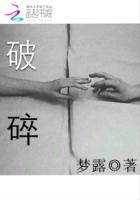At Rome, quiritary dominium , that is to say, the absolute right exercised over the soil appears for the first time. In the Middle Ages under the feudal system, property is a remuneration for certain services rendered. The fief is the salary attached to certain duties. In theory it is not hereditary; but is conferred for life by the sovereign, and the holder is bound in return to carry arms, to maintain order, and assist in the administration of justice. The indivisible property of the majorat preserves a very distinct social character. The individual in possession has only a life-interest; he may not dispose of it because it is destined to maintain the family, which, with its traditions, its greatness, and its hereditary duties, is regarded as the constituent element of the nation.
The hierarchial relations of class, and therefore the whole organization of the State, are based on the possession of the soil. At the present day property has been deprived of all social character: contrary to what it was originally, it is no longer collective. It is a privilege subject to no fetters, no reservation, and no obligation, which seems to have no other end than the well-being of the individual. Such is the general conception and definition of it. With increased facility of alienation, it passes from hand to hand, like the fruits it bears or the beasts it nourishes.
By advancing too far in this direction we have shake the foundations of society; and we may expect that in the future more scope will be allowed to the collective element. "We shall come," says Immanuel Fichte, "to a social organization of property. It will lose its exclusively private character to become a public institution. Hitherto the only duty of the State has been to guarantee to every one the quiet enjoyment of his property. Henceforth the duty of the State will be to put every one in possession of the property to which his wants and his capacities entitle him."According to this eminent German writer, such a transformation will be effected by the influence of Christianity. "Christianity," he says, "yet carries in its breast a renovating power of which we have no conception.
Hitherto it has only acted on individuals, and through them on the State indirectly. But whoever can appreciate its power, whether he be a mere believer or an independent thinker, will confess that it is destined some day to become the inner, organizing power of the State; and then it will reveal itself to the world in all the depth of its ideas, and the full richness of its blessing."Christianity has, in fact, introduced an ideal of justice, which positive institutions, in spite of many improvements, completely fail to realize.
This ideal was "the kingdom of God," which the early Christians thought to be at hand. Now we no longer expect the millennium, but should seek to establish principles of equality and evangelic justice on earth, in the midst of existing societies. But before better laws are established a higher sentiment of right and equity must pervade men's minds. We are beginning to see signs from time to time, as well among the upper as the labouring classes, that the equalitarian ideas of the Gospel will one day leaven our laws and our institutions. This point is set forth with much clearness in François Huet's book, Le Christianisme social , -- a work too little known.
There are certain countries in which the most radical democracy has been maintained for centuries, where feudalism and royalty have never penetrated, and where the most perfect liberty has reigned, without any danger of class struggles and social strife. These are the forest cantons of Switzerland, whose curious institutions have been so well described by Mr Freeman. There we may find the direct government dreamed of by Rousseau. The whole people come together to pass its laws, to nominate its magistrates, and to administer its affairs, just as was formerly the case in the Greek republics.
Here the object, which ancient lawgivers pursued in vain, has been attained.
Equality of conditions has been preserved, as Aristotle desired; and thus political equality has not led to anarchy and subsequent despotism. The primitive form of property has been respected, which is alone conformable to natural justice, and which alone permits of the permanence of true democracy, without hurrying society into disorder.
In all primitive societies, whether in Europe, Asia and Africa, alike among Indians, Slavs and Germans, as even in modern Russia and Java, the soil was the joint property of the tribe, and was subject to periodical distribution among all the families, so that all might live by their labour, as nature has ordained. The comfort of each was proportional to his energy and intelligence: no one, at any rate, was entirely destitute of the means of subsistence; and inequality increasing from generation to generation was provided against. In most countries this primitive form of property has given place to quiritary property and the inequality of conditions has led to the domination of the higher classes, and the more or less complete servitude of the labourer. In Switzerland, however, side by side with individual properties, there is in each commune a large portion of the territory still preserved as collective domain: this is the allmend . Its name indicates its nature as being "the property of all."The old German law had an admirable word to designate the inhabitants of a village: it styled them geerften , "inheritors." All the children of the large communal family were entitled to a share in the inheritance.
None was ever without a portion from which his labour might win sufficient for his support.














